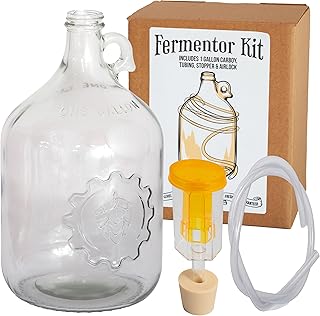Homebrewing is a rewarding hobby that allows beer enthusiasts to create their own unique brews from scratch. It involves transforming simple ingredients like water, malt, hops, and yeast into a personalized craft beer. The satisfaction of sharing a well-brewed beer with friends is unmatched, making homebrewing an appealing pastime. However, achieving consistently great results requires practice, experience, and meticulous attention to detail.
Expert homebrewers emphasize the crucial role of sanitation in the brewing process. Failing to sanitize equipment properly can introduce off-flavors caused by unwanted microorganisms like wild yeast and bacteria. Using food-safe cleansing agents and sanitizing all equipment thoroughly is essential to prevent contamination and ensure the quality of the final product.
Controlling fermentation temperatures is another critical factor in brewing beer. Different yeast strains thrive at specific temperatures, and deviations can lead to off-flavors. Maintaining the ideal fermentation temperature is vital for yeast health and flavor development. Investing in temperature control equipment or improvising with simple cooling methods can help novice brewers achieve better results.
The quality of yeast used in brewing significantly impacts the flavor profile of the beer. Healthy and fresh yeast is essential for successful fermentation and flavor enhancement. Creating a suitable environment for yeast to thrive, including proper pH levels and temperature, is crucial for producing high-quality beer.
Water quality plays a significant role in beer production, affecting the final flavor of the brew. Some brewers modify their brewing water to match traditional beer styles, adjusting mineral content to replicate authentic flavors. Ensuring water is free from contaminants and unwanted flavors is essential for brewing excellent beer.
Oxygen exposure during fermentation can lead to beer oxidation and off-flavors. Protecting beer from airborne contaminants by using airlocks and minimizing oxygen exposure is essential for maintaining beer quality. Proper fermentation management and attention to detail during this stage are crucial for successful beer production.
Patience is key in homebrewing, especially during fermentation and conditioning. Rushing the fermentation process or bottling beer prematurely can result in off-flavors and potential hazards like exploding bottles. Allowing beer to ferment fully and carbonate properly ensures a satisfying drinking experience.
Consistent monitoring and attention to detail throughout the brewing process are essential for producing high-quality homemade beer. Engaging with experienced brewers, joining homebrew clubs, and seeking advice from brewing resources can help novice brewers improve their skills and avoid common mistakes. Homebrewing is a craft that rewards dedication, practice, and a willingness to learn from others in the brewing community.
📰 Related Articles
- Travel Safety Tips for Zanzibar: Key Precautions and Advice
- Sportradar’s Key Tips for Enhancing Sportsbook Streaming Experience
- Solopreneurs Mastering Key Skills Redefine Future Entrepreneurship in 2025
- Mastering Wedding RSVPs: Tips for Timely Responses and Etiquette
- Mastering Website Authority: Key to SEO Success






